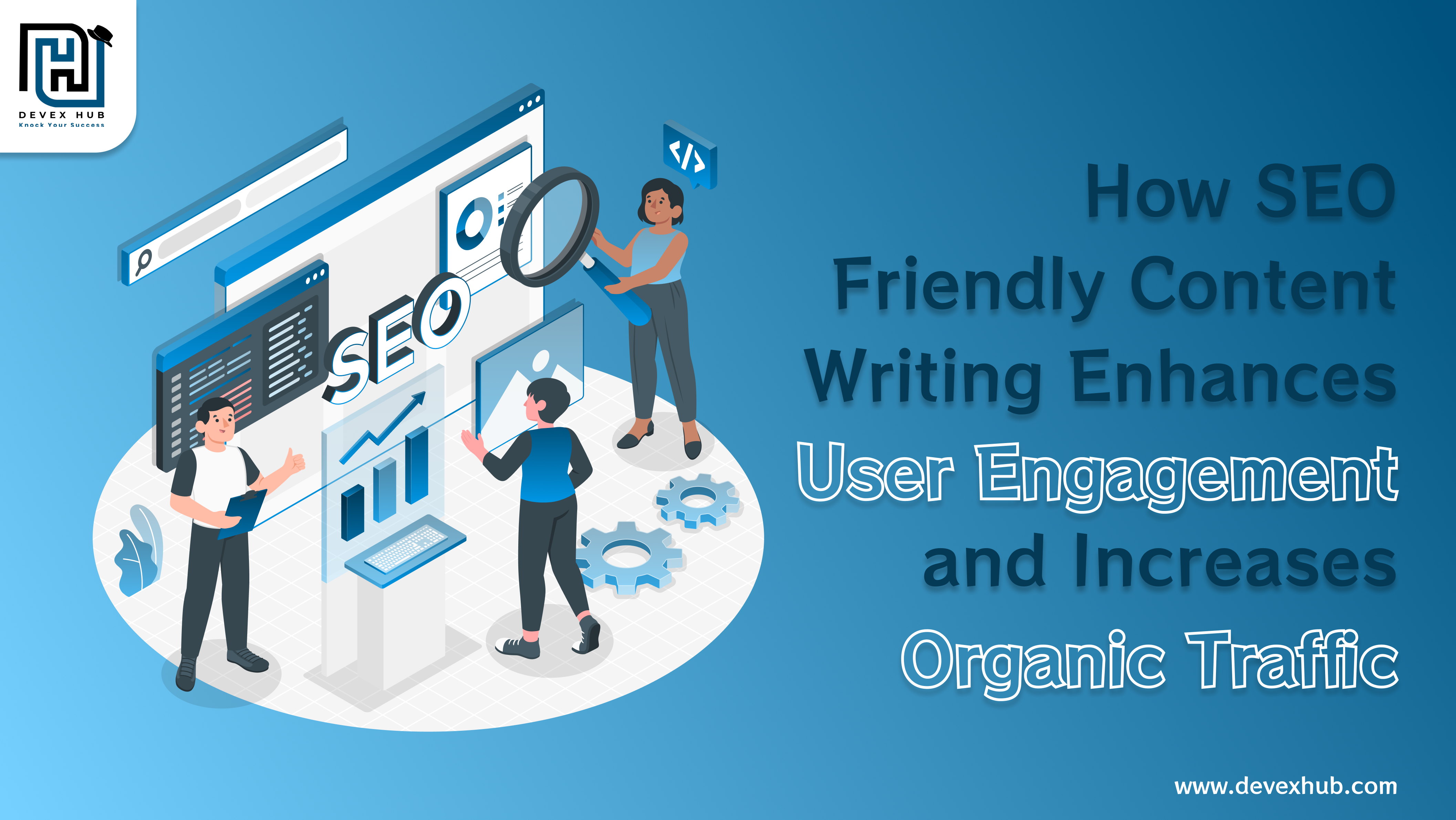Which Gives Better ROI: Facebook Ads or Google Ads?
.png)
When it comes to online advertising, two of the most prominent platforms businesses turn to are Facebook Ads and Google Ads. Both platforms are based on pay-per-click (PPC) advertising models and serve the primary purpose of promoting brands, attracting leads, and driving sales. But the question is, which one offers a better return on investment (ROI)?
At Devex Hub, we know that businesses often face a dilemma when choosing between Facebook Ads and Google Ads. Each platform has its strengths, and understanding their differences will help you decide which is better suited for your business goals.
In this article, we’ll dive into the key features of both Facebook Ads and Google Ads, compare their ROI potential, and offer insights to help you make an informed decision.
Facebook Ads
Facebook is the most widely used social media platform, with over three billion active users as of mid-2023. This vast reach makes Facebook Ads a popular choice for businesses looking to increase brand visibility and engage with a large audience. In 2022, businesses spent over $113 billion on Facebook Ads, a testament to its effectiveness in the digital marketing landscape.
Here’s why Facebook Ads might be a great fit for your business:
Targeted Advertising: Facebook offers powerful targeting capabilities, allowing advertisers to segment their audience based on age, location, gender, interests, and even behaviors.
Visual Appeal: Facebook is a highly visual platform, and its ad formats prioritize images, videos, and carousel ads, which work well for engagement.
Custom Audiences: Facebook allows you to retarget users who have previously interacted with your website, app, or other ads, ensuring you stay top of mind with potential customers.
Affordability: Facebook Ads generally offer lower cost-per-click (CPC) rates, making them a budget-friendly option for businesses of all sizes. CPC can range between $0.50 and $2.00, depending on the industry and competition.
Best for B2C Businesses: Facebook is ideal for businesses targeting individual consumers (B2C) rather than business clients (B2B), as its audience base is vast and diverse.
Google Ads
Google is the largest search engine in the world, with billions of searches conducted daily. As a result, Google Ads is an essential tool for businesses looking to capture high-intent leads and drive immediate conversions. In 2023, Google Ads generated over $237 billion in ad revenue, further reinforcing its significance in the advertising world.
Here’s why Google Ads might be the right choice for your business:
Search Intent Targeting: Google Ads target users who are actively searching for products or services, which typically indicates a higher purchase intent. This means you’re more likely to reach people ready to make a decision.
Diverse Ad Formats: Google Ads offers various ad types, such as search ads, display ads, shopping ads, and even YouTube ads, catering to different business needs.
Wide Reach: Google’s ad network extends beyond search results, appearing across the Google Display Network, including partner websites and mobile apps.
Cost Variability: Google Ads tend to have a higher CPC than Facebook, averaging between $1 to $2 for search network ads and $0.50 for display ads.
Best for B2B Businesses: Google Ads’ emphasis on search intent makes it a powerful tool for B2B businesses seeking high-quality leads, such as those in industries like legal services, technology, and consulting.
Facebook Ads vs. Google Ads: A Direct Comparison
Let’s break down the comparison between Facebook Ads and Google Ads in key areas:
Audience Targeting
- Facebook Ads: Best for demographic and interest-based targeting, helping businesses find new customers and build brand awareness.
- Google Ads: Focuses on search intent, capturing users who are actively searching for what you offer, making it ideal for businesses looking for high-intent leads.
Cost Efficiency
- Facebook Ads: Generally have lower CPCs, making them a great option for businesses with a modest budget. Small businesses can see substantial results without significant investment.
- Google Ads: While typically more expensive, Google Ads tend to deliver higher-quality leads that are more likely to convert, making it a worthwhile investment for businesses with larger budgets.
ROI Potential
- Facebook Ads ROI: Ideal for businesses aiming to engage consumers and build long-term relationships. B2C businesses, in particular, can achieve significant ROI by focusing on visually appealing campaigns.
- Google Ads ROI: Businesses selling high-value products or services often see a better ROI with Google Ads because they can target users who have already shown an intent to purchase.
Ad Types and Performance
- Facebook Ads: Works well for building brand awareness, increasing engagement, and targeting a broad audience. Visually appealing ads lead to better results on this platform.
- Google Ads: Best for driving conversions, as it targets users who are already searching for related products or services. Keyword optimization plays a critical role in Google Ads’ success.
Which Platform Offers Better ROI?
For Small Businesses
Facebook Ads often provide a better ROI, especially for businesses on a budget. With lower CPCs and a vast audience reach, small businesses can gain more visibility without committing large amounts of money to advertising.
For High-Intent Campaigns
Google Ads are more effective for high-intent campaigns, where businesses seek customers ready to make a purchase. For example, businesses in the legal or real estate industries can benefit greatly from Google’s search intent targeting.
For Long-Term Growth
Using both platforms in a complementary strategy provides the best results. Facebook Ads help build brand awareness and drive customer engagement, while Google Ads capture potential customers who are actively searching for products or services.
Factors Affecting ROI
Several factors influence the ROI you can achieve through Facebook Ads and Google Ads:
- Ad Objectives: Whether your goal is to generate leads, increase brand awareness, or drive conversions will affect the ROI.
- Target Audience: Facebook Ads excel when targeting broad consumer demographics, while Google Ads are better for targeting users with specific search intent.
- Budget Allocation: Small businesses benefit from Facebook Ads’ affordability, while larger companies may find Google Ads’ higher CPC rates worthwhile due to the quality of leads.
Real-World Insights
E-Commerce Business:
A small e-commerce store used Facebook Ads for brand awareness and Google Ads for conversions. The result? A 30% increase in ROI over three months.
Local Service Provider:
A plumbing service used only Google Ads to target users actively searching for plumbing services. This resulted in a 25% increase in conversions compared to Facebook Ads.
B2C Retailer:
A clothing brand utilized Facebook carousel ads and saw a 50% increase in click-through rates, resulting in 20% higher ROI than Google Ads.
Combining Facebook Ads and Google Ads for Maximum ROI
For the best ROI, consider integrating both platforms into your marketing strategy:
- Facebook Ads: Use them to create awareness and build relationships with potential customers.
- Google Ads: Target high-intent leads and drive conversions.
You can also retarget your audience across both platforms to create a holistic and effective marketing strategy.
When to Choose Facebook Ads
- Visual Campaigns: If your business offers products or services that benefit from a visual representation, Facebook is a great choice.
- B2C Marketing: Ideal for reaching individual consumers and building strong brand engagement.
- Low-Budget Campaigns: If you have a smaller budget, Facebook Ads can still deliver great results.
When to Choose Google Ads
- Search Intent: If your target audience is actively searching for what you offer, Google Ads are the way to go.
- B2B Marketing: Perfect for high-value sales, particularly in industries like technology and consulting.
- Immediate Conversions: Google Ads often result in quicker conversions, especially for businesses offering high-value products or services.
Final Thoughts
Ultimately, the ROI of Facebook Ads vs. Google Ads depends on your business goals, budget, and target audience. Facebook Ads are great for increasing brand awareness and building relationships with consumers, while Google Ads excel at capturing high-intent leads and driving immediate sales.
A combined approach often yields the best results, allowing you to leverage both platforms for brand building and conversion. When you use strategic PPC services from the best PPC company in Mohali, like Devex Hub, you can optimize your campaigns to maximize ROI on both platforms.
With the right strategy and budget, Facebook Ads and Google Ads can both significantly benefit your business, boosting visibility and driving sales effectively.

.png)
.png)
 (1).png)

Comments
Post a Comment